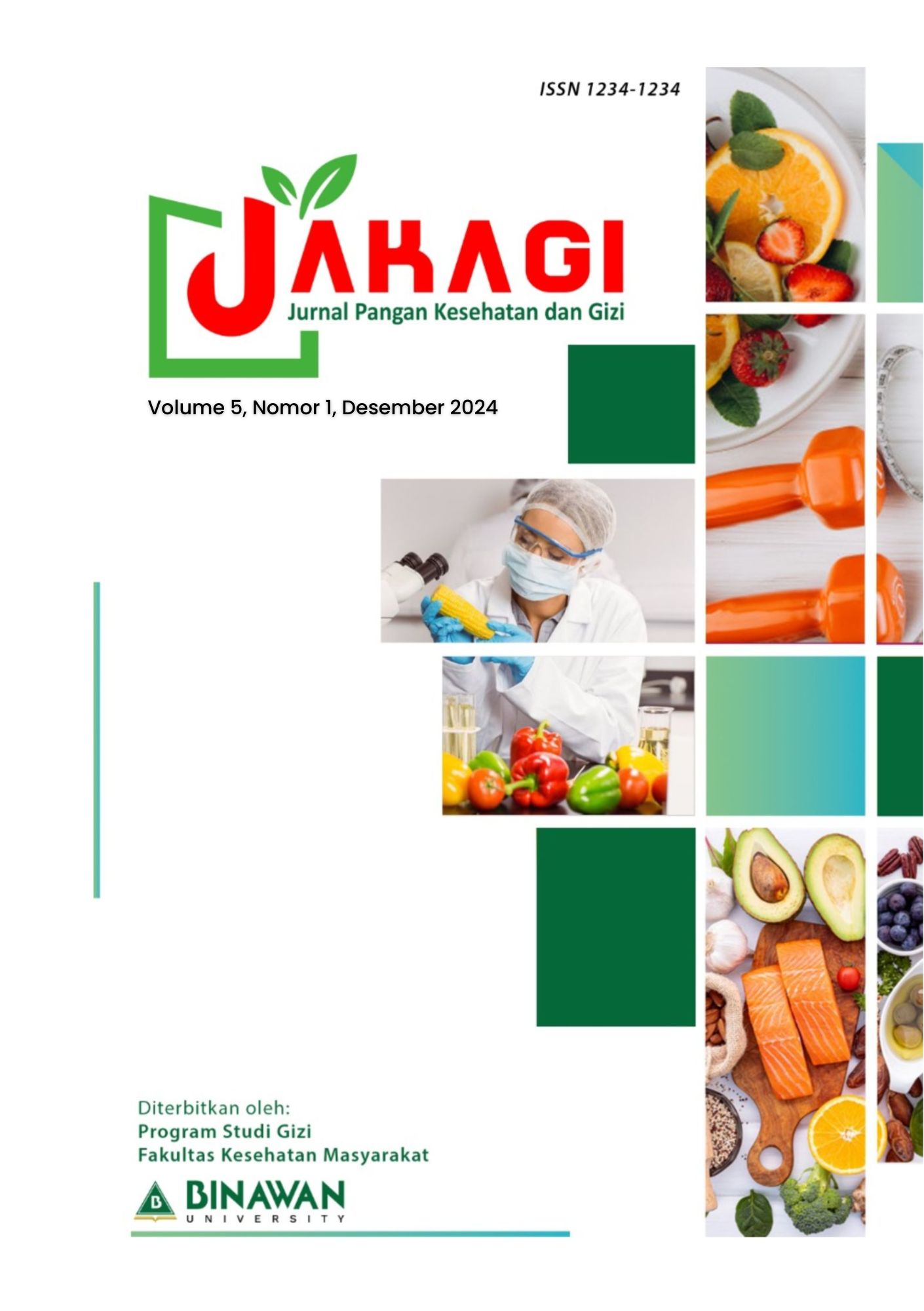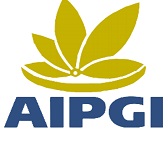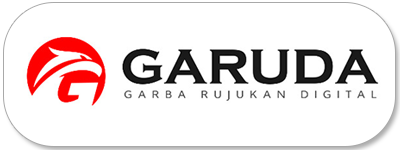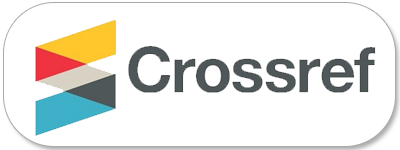The Correlation of Nutrition Knowledge, Diet, Physical Activity and Snack Food Consumption Habits with Nutritional Status of Elementary School-age Children at SDIT Babul Jannah
DOI:
https://doi.org/10.54771/ejjvqy75Keywords:
aktivitas fisik, kebiasaan konsumsi makanan jajanan, pengetahuan gizi, pola makan, status giziAbstract
Nutritional problems in school-age children can lead to physical impairment, reduced concentration while learning, and decreased intelligence which has an impact on children's school performance. Nutritional knowledge is an indirect factor in triggering under- and over-nutrition in primary school children. A child's poor diet will hamper growth and development. Low physical activity and consuming excess snacks will lead to overweight status. This study aims to determine the relationship between nutritional knowledge, diet, physical activity and snacks consumption habits with nutritional status in elementary school children at SDIT Babul Jannah. This study used quantitative methods. This type of research is observational with a cross sectional approach. Sample selection was carried out by random sampling method, the sample totaled 55 respondents. The results of the study using the Rank Spearman statistical test showed nutritional knowledge (p = 0.716), physical activity (p = 0.558) was not associated with nutritional status, while diet (p = 0.001), snacks consumption habits (p = 0.001) associated with nutritional status. It is hoped that students can increase knowledge related to nutrition, diet, physical activity and consumption habits of snacks so that in everyday life they are more selective in choosing the food consumed and do good physical activity and not excessive.
References
Amrah, A., 2013. Perkembangan Moral Anak Usia Sekolah Dasar. Publikasi Pendidikan, 3(1). https://doi.org/10.26858/publikan.v3i1.1602
Asakura, K., Todoriki, H., & Sasaki, S. 2017. Relationship between nutrition knowledge and dietary intake among primary school children in Japan: Combined effect of children's and their guardians' knowledge. Journal of epidemiology, 27(10), 483-491. https://doi.org/10.1016/j.je.2016.09.014
Bhat, V. N., 2016. Fast Food Consumption and Body Mass Index. Journal of Social Sceinces
Corvalán, C., Garmendia, M. L., Jones‐Smith, J., Lutter, C. K., Miranda, J. J., Pedraza, L. S., & Stein, A. D. (2017). Nutrition status of chil-dren in Latin America. Obesity Reviews, 18, 7-18.https://doi.org/10.1111/obr.12571
Damayanti, A. E. (2016). Hubungan Citra Tubuh, Aktivitas Fisik, Dan Pengetahuan Gizi Seimbang Dengan Status Gizi Remaja Putri. Diakses pada : http://repository.unair.ac.id/46573/
De Villiers, A., Steyn, N. P., Draper, C. E., Hill, J., Gwebushe, N., Lambert, E. V., & Lombard, C., 2016. Primary School Children’s Nutrition Knowledge, Self-Efficacy, and Behavior, After aThree-Year Healthy Lifestyle Intervention (HealthKick). Ethnicity and Disease 26(2), 171–180.
Donin, A. S., Nightingale, C. M., Owen, C. G., Rud-nicka, A. R., Cook, D. G., & Whincup, P. H., 2018. Takeaway meal consumption and risk markers for coronary heart disease, type 2 diabetes and obesity in children aged 9–10 years: a cross-sectional study. Archives of disease in childhood, 103(5), 431-436. http://dx.doi.org/10.1136/archdischild-2017-312981.
Hardinsyah, P., & Supariasa, I. D. N. 2016. Ilmu Gizi: Teori Aplikasi. Jakarta: EGC
Herliani, D., 2022. Hubungan Kebiasaan Jajan Dan Pola Makan Dengan Status Gizi Anak Di Tk Asri Palembang Tahun 2022. Humantech : Jurnal Ilmiah Multidisiplin Indonesia, 1(6), 801–809. https://doi.org/10.32670/ht.v1i6.1608
Kemenkes RI, 2017. Profil Kesehatan Indonesia Tahun 2016. Jakarta: Kementrian Kesehatan RI. J Med dan Rehabil. 2016;
Lister, N. B., Gow, M. L., Chisholm, K., Grunseit, A., Garnett, S. P., & Baur, L. A. (2017). Nutritional adequacy of diets for adolescents with overweight and obesity: considerations for dietetic practice. European journal of clinical nutrition, 71(5), 646-651. https://doi.org/10.1038/ejcn.2016.268
Novianti, R.D dan D. Marfuah. 2017. Hubungan Pengetahuan Gizi, Aktivitas Fisik, dan Pola Makan Terhadap Status Gizi Remaja Di Kelurahan Purwosari Laweyan Surakarta. The 6th University Research Colloquium (URECOL) 2017. Universitas Muhammadiyah Magelang. Magelang
Nova, M., & Yanti, R., 2018. Hubungan Asupan Zat Gizi Makro dan Pengetahuan Gizi dengan Status Gizi pada Siswa Mts. s Annurkota Padang. JURNAL KESEHATAN PERINTIS (Perintis's Health Journal), 5(2), 169-175. https://doi.org/10.33653/jkp.v5i2.145
Nuryani & Rahmawati, 2018. Kebiasaan Jajan Berhubungan dengan Status Gizi Siswa Anak Sekolah di SDN 11 Limboto Kabupaten Gorontalo. Jurnal Gizi Indonesia
Oktafiana, R., & Wahini, M. (2016). Faktor-Faktor Yang Mempengaruhi Status Gizi Anak Usia Sekolah Pada Keluarga Atas Dan Bawah (Kasus Di Desa Sidoharjo, Kabupaten Ponorogo). Jurnal Tata Boga, 5(3). https://core.ac.uk/download/pdf/230743030.pdf
Pamungkas, U. L., 2017. Hubungan Kebiasaan Jajan Anak dengan Status Gizi Anak pada Usia Sekolah Di SDN Bibis Kasihan Bantul. Skripsi.
Pereira, P. F., Rita de Cássia, G. A., & Araújo, R. M. A. (2014). Does breastfeeding influence the risk of developing diabetes mellitus in chil-dren? A review of current evidence. Jornal de pediatria, 90(1), 7-15.https://doi.org/10.1016/j.jped.201.02.02.
Wiriastuti, M. A. W., 2019. Hubungan Tingkat Pengetahuan Kebiasaan Jajan dan Tingkat Konsumsi Makanan Jajanan dengan Status Gizi Anak Sekolah Dasar Negeri 29 Dangin Puri Denpasar. Skripsi.
Wiradnyani, L. A. et al., 2019. Gizi dan Kesehatan Anak Usia Sekolah Dasar. Jakarta: SEAMEO RECFON, Kemendikbud RI.
Yanti, N. K. W. F., 2022. Hubungan Kebiasaan Konsumsi Jajanan dengan Status Gizi Anak Sekolah di SD Negeri 17 Kesiman. Skripsi







